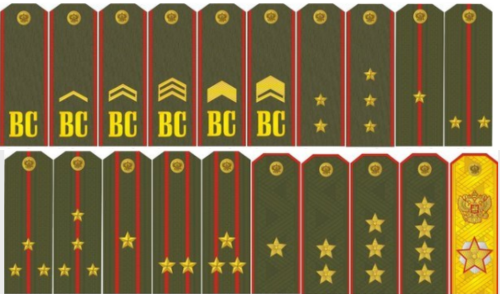
Basic About Soviet Military Uniform Ranks – From 1930’s till 1990’s
Did you know that the Soviet military uniform ranks system underwent several changes from 1918 to 1991? Understanding soviet military uniform ranks helps you identify a uniform’s role and era at a glance. If you’re a collector, history buff, or museum curator, you’ll also want to explore our broader guide to Soviet army uniforms.
You’ll learn to decode officer grades, enlisted badges, and special insignia like a pro.
Understand soviet military uniform ranks basics.
At first glance, soviet military uniform ranks can feel overwhelming. Here’s the thing: you need to know three main groups. The system included commissioned officers, noncommissioned officers (NCOs), and enlisted soldiers.
Most rank markers appeared on shoulder boards, collar tabs, or sleeve stripes. These insignia used stars, chevrons, and colored piping to show your position. Ready to dive in?
Explore officer ranks
Officers in the Red Army wore distinctive shoulder boards with stars and piping that matched their branch.
Junior officers
- Lieutenant (Leytenant) — single star on shoulder board
- Senior lieutenant (Starshiy leytenant) — two stars
- Captain (Kapitan) — three stars
Senior officers
- Major (Mayor) — one larger star
- Lieutenant colonel (Podpolkovnik) — two larger stars
- Colonel (Polkovnik) — three larger stars
General officers
- Major general (General-mayor) — one star surrounded by a wreath
- Lieutenant general (General-leytenant) — two wreath-encircled stars
- Colonel general (General-polkovnik) — three wreath-encircled stars
- Army general (General armii) — large emblem with state symbol
Examine enlisted and NCO ranks
Enlisted and noncommissioned officers had simpler badges, often on sleeves or boards.
Enlisted personnel
- Ryadovoy (Private) — no insignia or small red star
- Efreitor (Lance corporal) — single chevron on sleeve
Noncommissioned officers
- Junior sergeant (Mladshiy serzhant) — one chevron
- Sergeant (Serzhant) — two chevrons
- Senior sergeant (Starshiy serzhant) — three chevrons
- Starshina (First sergeant) — four stacked chevrons
Identify uniform insignia
Common insignia types
| Insignia type | Location | What to look for |
|---|---|---|
| Shoulder boards | Shoulders | Stars, stripes, colored piping |
| Collar tabs | Collar | Branch symbols, stripes |
| Sleeve chevrons | Upper arm | Wool or cloth chevrons for NCOs |
| Cap badge | Front of cap | Red star, wreath, hammer, and sickle |
Branch color codes
- Raspberry red — infantry
- Black — armored corps and engineers
- Light blue — air force
- Dark blue — navy
Want to pin down a service branch at a glance?
Care for your uniform
Storage tips
- Hang uniforms on padded or wide hangers
- Please keep them in a fabulous, dark closet away from sunlight
- Store metal badges separately to avoid scratches
Cleaning guidelines
- Remove shoulder boards before washing
- Hand wash gently in cool water with mild detergent
- Air dry flat or on a hanger to keep shape
Now you can decode Soviet rank badges, from privates to generals. Have you spotted any unique insignia in your collection? Drop a comment and share your finds with fellow history enthusiasts.
More interesting about Soviet military uniform ranks
In the modern army, the warrant officer’s stars are located across, and the chief warrant officer has them arranged as a triangle. In Soviet times, the stars of both the warrant officer and the chief warrant officer were located along the shoulder strap.
By decree of the President of the Russian Federation in the 1990s, two types of shoulder straps were introduced: pentagonal and hexagonal.
For cadets, triangular shoulder straps were introduced to match the color of their uniforms. The shoulder straps of warrant officers are very similar to the shoulder straps of officers, but still contain a minor detail. On their shoulder straps, small stars are arranged vertically, and there are small gaps between the stars. The stars on the officers’ shoulder straps are placed in a row, one after another.

